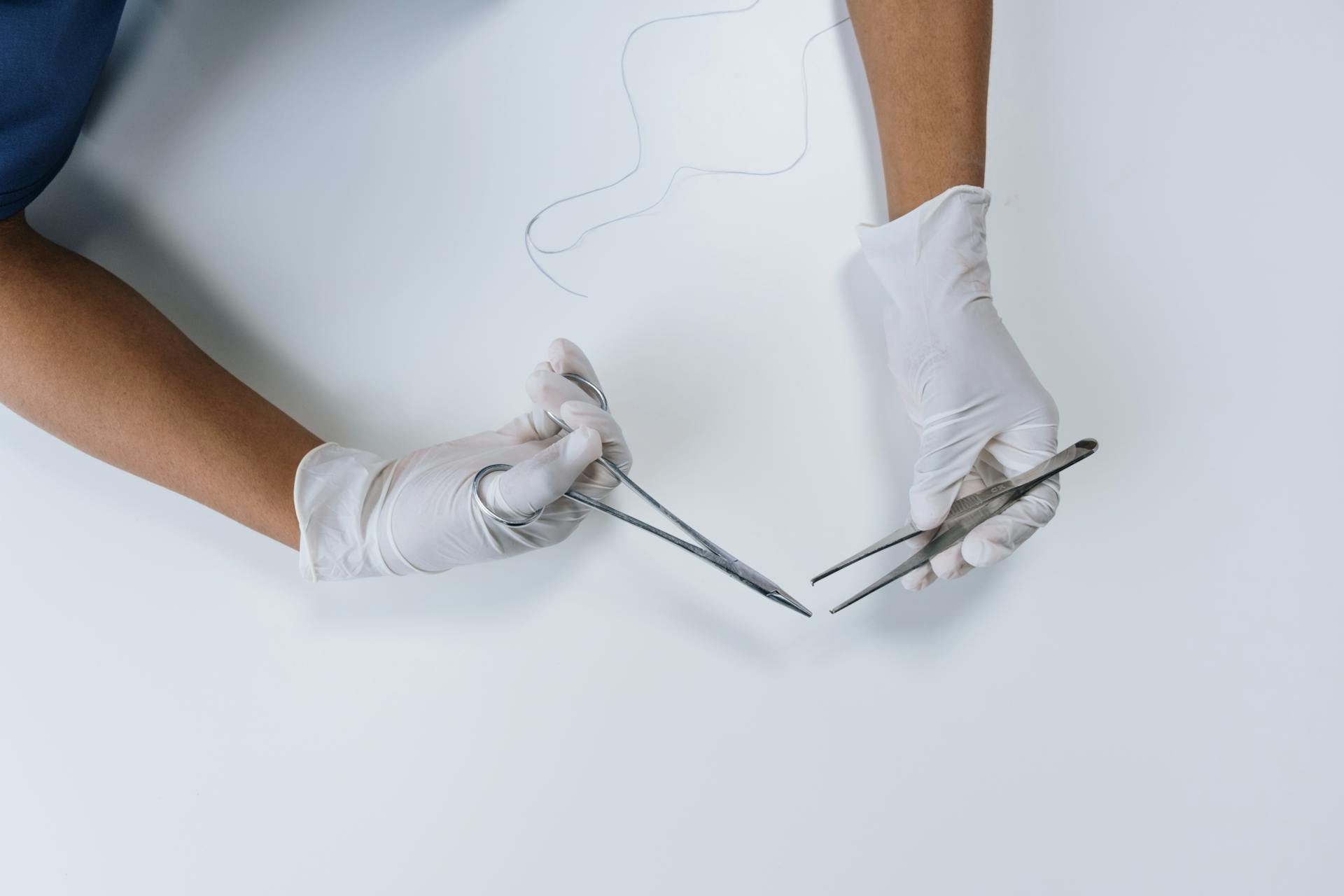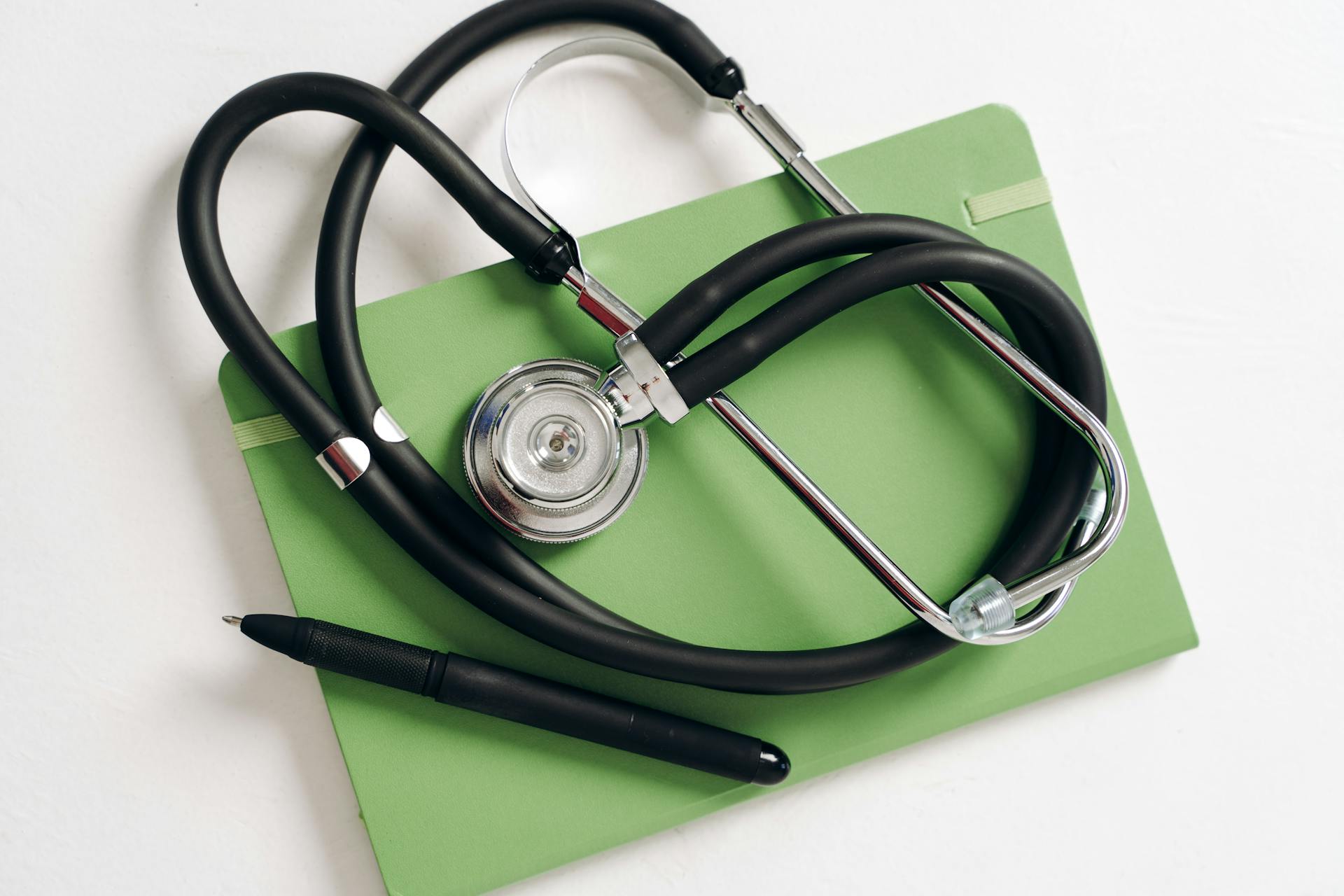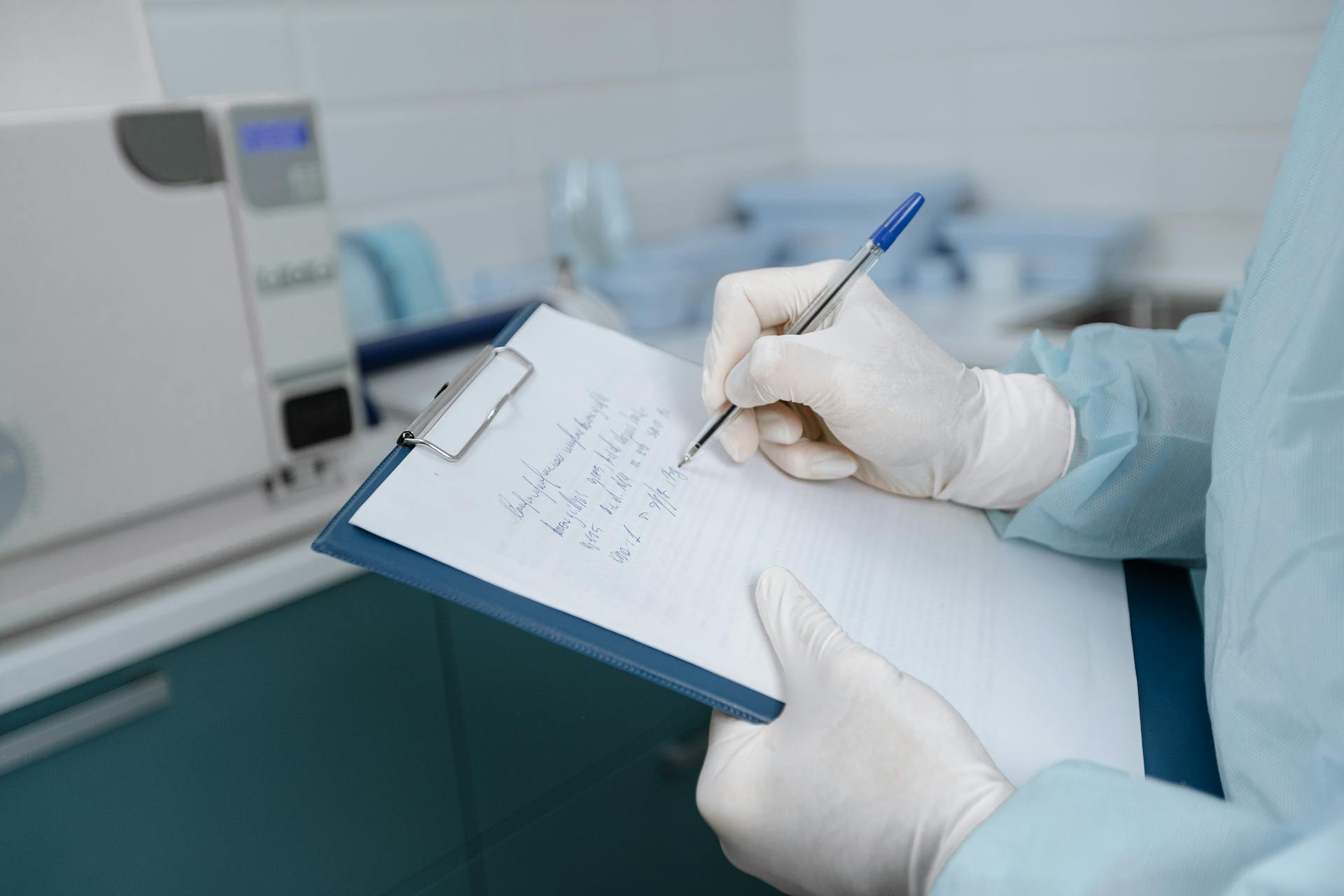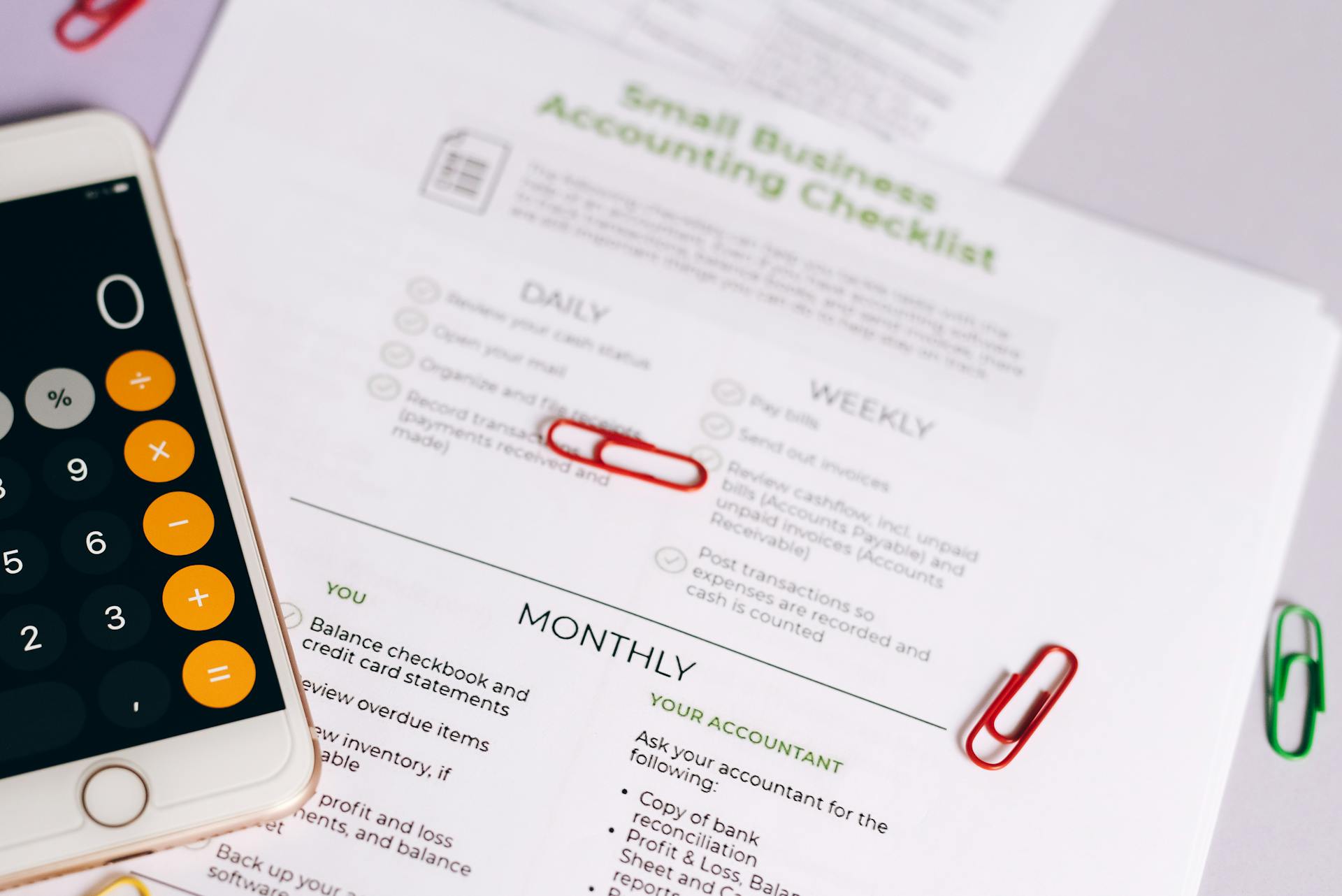
As a HIPAA compliance officer, your primary responsibility is to ensure that your organization is in full compliance with the Health Insurance Portability and Accountability Act of 1996. This includes developing and implementing policies and procedures to protect the confidentiality, integrity, and availability of protected health information (PHI).
HIPAA compliance officers must be well-versed in the regulations and guidelines set forth by the U.S. Department of Health and Human Services (HHS). They must also have a strong understanding of the risks and consequences of non-compliance, which can result in fines and penalties of up to $1.5 million per year.
To succeed in this role, a HIPAA compliance officer must be highly organized and detail-oriented. They must be able to identify and mitigate potential risks to PHI, as well as develop and implement effective training programs for employees.
You might like: Health Insurance Exchange Notice
Duties and Responsibilities
As a HIPAA compliance officer, your duties and responsibilities are crucial to ensuring the confidentiality, integrity, and availability of protected health information (PHI).

You are responsible for developing and implementing a HIPAA-compliant privacy program, or overseeing an existing one to ensure it remains compliant. This includes enforcing the organization's privacy policies and monitoring changes to HIPAA rules to update policies accordingly.
Your role involves creating training materials and courses to educate employees about the organization's privacy program, as well as conducting risk assessments to identify potential vulnerabilities.
You must also provide patients with a user-friendly explanation of their rights under HIPAA, as outlined in the notice of privacy practices. Additionally, you will investigate and respond to complaints of HIPAA non-compliance.
In some cases, the duties of the privacy officer and security officer may overlap, and one person may take on both roles in smaller organizations. However, in larger organizations, the role may need to be divided between two individuals.
Here are some key responsibilities of a HIPAA compliance officer:
- Develop a HIPAA-compliant privacy program or administer an existing one.
- Enforce the organization’s privacy policies.
- Monitor changes to the HIPAA rules and update policies regularly.
- Create training materials and courses to teach employees about the organization’s privacy program.
- Conduct risk assessments on HIPAA compliance.
- Provide patients with a user-friendly explanation of their rights under HIPAA.
- Investigate and respond to complaints of HIPAA non-compliance.
- Act as a resource to employees/staff and Business Associates regarding HIPAA regulations.
These responsibilities are critical to maintaining HIPAA compliance and protecting the confidentiality, integrity, and availability of PHI.
Qualifications and Requirements

To be a HIPAA compliance officer, you'll want to look for someone with a solid understanding of the HIPAA law. A privacy officer should have a high position within the company to give them the employee respect needed to create a receptive environment for HIPAA.
A bachelor's degree in a healthcare field or a bachelor's degree in human resources is often required for this role. The HIPAA privacy officer requirements can vary based on the organization.
A strong understanding of HIPAA is essential for a compliance officer, and they should be able to stay up-to-date with HIPAA updates and news through online training or seminars. They'll need to have the resources and drive to keep the company compliant.
Good organizational skills and a knack for detail are also crucial for a HIPAA compliance officer. They'll be managing programs and systems that support HIPAA, so they need to be able to handle multiple tasks and responsibilities.
A respected leader in the Privacy Officer position is necessary for sanctioning employees who are not following HIPAA. Corrective actions in the event of a breach or security incident are a key component of the HIPAA Law.
Broaden your view: Hipaa Law in Healthcare
Job Description

As a HIPAA Compliance Officer, you'll be responsible for ensuring your organization's compliance with the Health Insurance Portability and Accountability Act (HIPAA) regulations. This includes understanding the HIPAA Privacy, Security, and Breach Notification Rules.
You'll need to develop and implement a comprehensive HIPAA compliance program that includes training programs for employees who handle Protected Health Information (PHI). This training will help employees understand their responsibilities and how to maintain confidentiality.
Your role will also involve staying up-to-date on changing regulations and modifying your organization's compliance processes accordingly. This requires regular monitoring of HHS and state regulatory requirements.
A key part of your job will be to create and implement processes for investigating privacy complaints and cooperating with the Office for Civil Rights (OCR) and state attorneys general during investigations and compliance reviews.
Here are some of the key duties you'll be responsible for:
- Thoroughly understand various HIPAA laws and the HITECH Act.
- Stay updated about constantly changing regulations.
- Deal with customer complaints in a compassionate and empathetic manner.
- Create training programs for employees who deal with PHI.
- Implement programs to keep private information secure.
- Understand and enforce the HIPAA Breach Notification Rule.
- Work with senior management to establish governance for the privacy program.
- Develop strategies to promote compliance with staff.
- Create and implement the process for the investigation of privacy complaints.
- Cooperate with the OCR and state attorneys general regarding investigations and compliance reviews.
Compliance and Regulations
As a HIPAA compliance officer, it's essential to understand the importance of enforcing regulations. One of the most critical responsibilities is conducting risk assessments and reviewing policies to ensure compliance with HIPAA.

A HIPAA compliance officer is responsible for overseeing everything related to HIPAA requirements and procedures, supervising the organization's privacy policy, and the security of protected health information (PHI). They must also monitor daily operations, investigate reports of breaches, and uphold patients' rights.
To become HIPAA compliant, organizations must follow the 7 Steps outlined in the HIPAA Compliance Guide. These steps include creating and implementing policies and procedures, appointing a HIPAA Compliance Officer, and providing employees with HIPAA compliance and security awareness training.
Some common responsibilities of a compliance officer include developing a HIPAA-compliant privacy program, enforcing the organization's privacy policies, and monitoring changes to HIPAA rules. They must also create training materials, conduct risk assessments, and provide patients with a user-friendly explanation of their rights under HIPAA.
The duties of a security officer often overlap with those of a privacy officer, and in smaller organizations, one compliance officer may fulfill both roles. Their responsibilities may include implementing technology to keep PHI protected, developing a disaster recovery plan, and preventing unauthorized access to PHI.
A HIPAA Privacy Officer oversees the organization's privacy program, which defines, develops, implements, and maintains policies and processes that create effective privacy practices. Their responsibilities include adopting policies and procedures, updating privacy policies, sending out a Notice of Privacy Practices, and monitoring business associates.
Worth a look: Hipaa Security Services

A key requirement of HIPAA is the development and distribution of a Notice of Privacy Practices, which describes the uses and disclosures of protected health information, an individual's rights, the covered entity's duties, the complaint process, contact information, and the effective date of the notice.
Here is a summary of the common responsibilities of a HIPAA compliance officer:
- Develop a HIPAA-compliant privacy program or administer an existing one.
- Enforce the organization's privacy policies.
- Monitor changes to HIPAA rules and ensure updates of policies regularly.
- Create training materials and courses to teach employees about the organization's privacy program.
- Conduct risk assessments on HIPAA compliance.
- Provide patients with a user-friendly explanation of their rights under HIPAA.
- Investigate and respond to complaints of HIPAA non-compliance.
- Act as a resource to employees/staff and Business Associates regarding HIPAA regulations.
- Keep abreast of all state and federal laws concerning patients' rights.
Training and Education
As a HIPAA compliance officer, you're tasked with creating comprehensive training programs to educate your staff on regulatory procedures. These programs are crucial in ensuring that employees understand the importance of compliance and are equipped to safeguard patient information.
HIPAA compliance officers are responsible for reporting any changes to their facility and creating training programs, which can be a significant undertaking. However, it's essential for protecting patient confidentiality and privacy.
In some organizations, like IU, certain members are required to obtain training related to regulatory obligations of HIPAA. This includes the School of Dentistry, IU Student Health Center, and School of Optometry.
Training & Education

Compliance officers play a critical role in ensuring employees understand the importance of HIPAA compliance and are equipped with the tools to safeguard patient information.
To stay up-to-date on regulatory changes, healthcare organizations must implement comprehensive training programs and materials to educate their staff on regulatory procedures.
Certain members of IU are required to obtain training related to the regulatory obligations of HIPAA.
This includes the School of Dentistry, IU Student Health Center, and School of Optometry.
Explore further: Free Hipaa Training Video
Research
Research is a systematic investigation designed to develop or contribute to generalizable knowledge.
The IU Human Research Protection Program (HRPP) Policy, Use of Protected Health Information (PHI) in Research, applies to human subjects research regulated under HIPAA.
This policy also applies to the use of protected health information (PHI) for research that does not require IU IRB approval but for which the IU Privacy Board grants a waiver of authorization.
Understanding the conditions for using protected health information in research is crucial for ensuring compliance with HIPAA regulations.
The HIPAA Privacy Rule establishes the conditions under which protected health information may be used or disclosed by covered entities for research purposes.
The IU HRPP Policy provides a framework for researchers to follow when using protected health information in their studies.
Explore further: Hipaa Applies to Which of the following
Frequently Asked Questions
How do I become a HIPAA privacy officer?
To become a HIPAA privacy officer, you typically need a relevant degree and knowledge of HIPAA regulations. A degree in healthcare administration, health information technology, or medical coding is often preferred by employers.
How do I get HIPAA compliance certification?
To get HIPAA compliance certification, you must complete a certification program accredited by the US Department of Health and Human Services (HHS) and pass a written exam administered by HHS. This typically requires a basic understanding of the HIPAA Privacy Rule and Security Rule.
What is the role of a compliance officer?
A compliance officer ensures a company adheres to external regulations, laws, and internal policies. Their role involves identifying and managing regulatory risks to protect the employer's interests.
How do I become a healthcare compliance officer?
To become a healthcare compliance officer, you'll need a bachelor's degree, relevant work experience, and specialized certifications like a healthcare compliance officer certificate. Start by earning a degree and gaining experience in a healthcare-related role to set yourself up for success in this field.
Sources
- https://www.foxgrp.com/hipaa-compliance/hipaa-compliance-officer-the-role-and-purpose/
- https://medtrainer.com/blog/what-are-the-duties-of-a-hipaa-compliance-officer/
- https://www.totalhipaa.com/selecting-hipaa-privacy-officer/
- https://www.hipaaguide.net/the-duties-of-a-hipaa-compliance-officer/
- https://privacy.iu.edu/health/privacy.html
Featured Images: pexels.com

